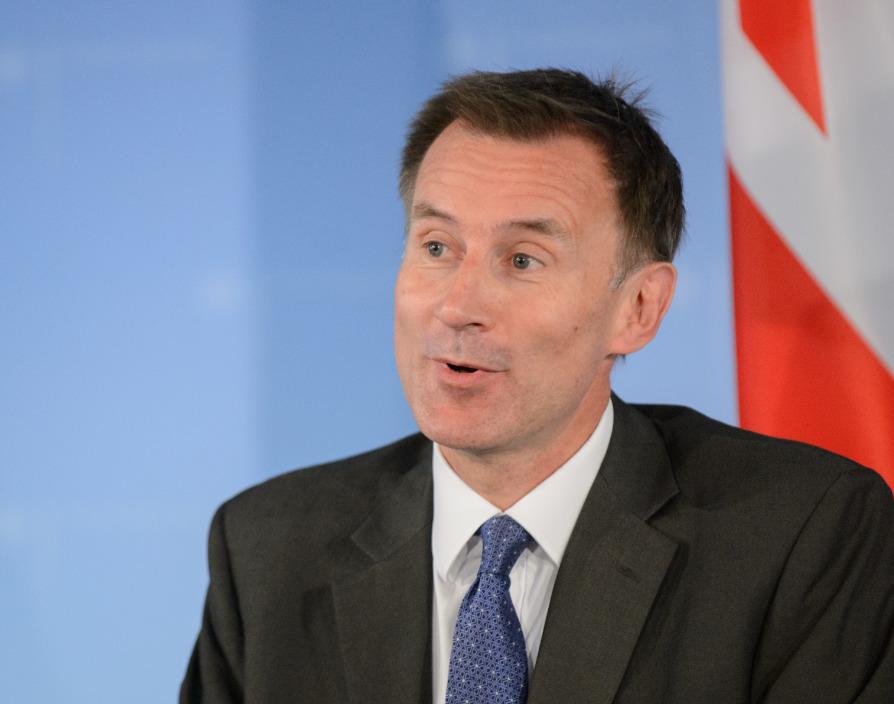Mr Hunt said he has been forced to take “difficult” decisions to tackle UK’s rising inflation
Jeremy Hunt has unveiled his Autumn budget today as he set out a £55 billion package of tax rises and spending cuts. The chancellor has declared the UK is now in a recession, setting out a series of new measures to weather the economic “storm” sweeping the country. He plans to create a shallower recession and higher long-term growth, telling MPs that his three priorities are “stability, growth and public services”. Inflation in the UK has reached yet another 40-year high, peaking at 11.1 percent.
The Office for Budget Responsibility has warned the UK is already in a recession, with higher energy prices explaining the majority of the revision in growth forecasts. GDP will fall 1.4pc in 2023 before a slight increase to 1.3pc in 2024. It predicted that the UK’s inflation rate will be 9.1pc this year and 7.4pc next year.
The chancellor is imposing a tax rise on the highest earners by cutting the 45p income tax threshold from £150,000 to £125,000. This will drag hundreds of thousands of workers into the highest tax band. Mr Hunt has announced a series of ‘stealth’ tax freezes. Personal allowance, Employers’ National Insurance threshold and inheritance tax thresholds will be frozen for an extra two years until April 2028. Dividend tax allowance will be cut from £2,000 to £1,000 next year and then to £500 from April 2024. The exempt allowance for capital gains tax will be more than halved to £6,000 next year and halved again to £3,000 from April 2024.
Jeremy Hunt has confirmed that he is imposing a much bigger windfall tax on oil and gas operators while also slapping a fresh tax on electricity generators — all of which have benefited from the recent spike in energy prices caused by Russia’s invasion of Ukraine. The UK windfall tax on oil and gas companies will rise from 25% to 35% and will be extended from four years to six years. There will also be a new 45% levy imposed on electricity generators over a certain threshold. The two taxes combined will raise £14bn next year alone, the chancellor said.
Meanwhile, electric vehicle car owners will have to pay tax from 2025 as they will no longer be exempt from vehicle excise duty. Hunt said the measure was important to “make the motoring tax system fairer”. With tax rises and cuts, there is some light at the end of the tunnel for businesses. Chancellor Jeremy Hunt has announced a £13.6bn business rates relief package to counter the rise in the levy for hundreds of thousands of companies set to take place in April next year.
Hunt said that the five years temporary relief scheme meant that two-thirds of properties would not need to pay any more in business rates next year. The Pensions Triple Lock and Pension Credit will be protected and rise in April 2023 by 10.1%. This will support pensioners through the challenging economic situation. Raj Mody, global head of pensions at PwC praised the government’s decision to triple lock pensions, adding: “Looking forward, if the triple lock continues, then it’s likely that the state pension will catch up with the tax-free Personal Allowance by the end of the 5-year period that the Personal Allowance has been frozen for. That will create an interesting policy situation for future Governments, which may be better tackled earlier than later. To end up in the situation where the state pension itself is taxed seems odd, for the Government to give out with one hand and then take back with another.”
However, businesses have lashed out at the tax increases, with some saying it will have a detrimental impact, especially for small firms. David Brown, CEO at Hi said: “From office rent to higher-than-expected salary increases, small businesses are facing rising costs across the board. The tax increases announced in today’s Autumn statement are piling on the misery for SMEs in the UK. At a time where businesses are already struggling to stay afloat amidst the UK’s stagflation crisis, tax increases will only add to SMEs’ existing problems.”
Laurent Descout, CEO and Co-Founder of Neo added: “The decision by the Chancellor to increase tax for businesses adds to the long list of existing challenges including surging prices, supply chain issues and economic uncertainty. Businesses need to be incentivised to invest and take risks, but the tax increases announced in today’s Autumn statement will do the opposite, stifling innovation and economic growth.”
Some businesses have hit out at tax freezes, saying it will have a detrimental impact on SMEs in a turbulent economic forecast. Alan Thomas, UK CEO at Simply Business, said: “The stealth tax freezes set out in today’s Budget will have a huge impact on UK small businesses. Freezing national insurance and tax rates will erode the post-tax income of SMEs at a time when their recovery remains in the balance. Coupled with rising interest rates and inflation, this makes for a worrying combination – especially as a recession looms.”
Share via:









































